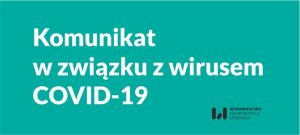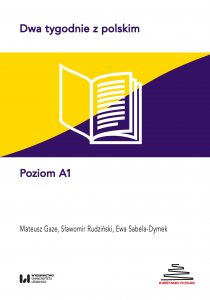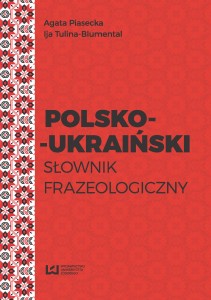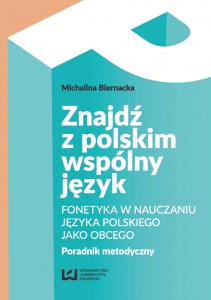Bulletin of the Section of Logic | Vol. 51 No.1
Opublikowano: 23 maja 2022
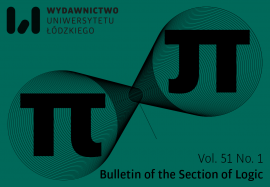
Zapraszamy do lektury najnowszego numeru “Bulletin of the Section of Logic” Tom pierwszy numeru 51 zawiera sześć anglojęzycznych artykułów dotyczących rachunku logicznego, metodologii i interpretacji algebraicznej.
W numerze (PDF):
An Epistemological Study of Theory Change
Theofanis Aravanis
Belief Revision is a well-established field of research that deals with how agents rationally change their minds in the face of new information. The milestone of Belief Revision is a general and versatile formal framework introduced by Alchourrón, Gärdenfors and Makinson, known as the AGM paradigm, which has been, to this date, the dominant model within the field. A main shortcoming of the AGM paradigm, as originally proposed, is its lack of any guidelines for relevant change. To remedy this weakness, Parikh proposed a relevance-sensitive axiom, which applies on splittable theories; i.e., theories that can be divided into syntax-disjoint compartments. The aim of this article is to provide an epistemological interpretation of the dynamics (revision) of splittable theories, from the perspective of Kuhn’s inuential work on the evolution of scientific knowledge, through the consideration of principal belief-change scenarios. The whole study establishes a conceptual bridge between rational belief revision and traditional philosophy of science, which sheds light on the application of formal epistemological tools on the dynamics of knowledge.
Sandra M. López
Six interesting variants of the logics BN4 and E4—which can be considered as the 4-valued logics of the relevant conditional and (relevant) entailment, respectively—were previously developed in the literature. All these systems are related to the family of relevant logics and contain Routley and Meyer’s basic logic B, which is well-known to be specifically associated with the ternary relational semantics. The aim of this paper is to develop reduced general Routley-Meyer semantics for them. Strong soundness and completeness theorems are proved for each one of the logics.
A Note on the Intuitionistic Logic of False Belief
Tomasz Witczak
In this paper we analyse logic of false belief in the intuitionistic setting. This logic, studied in its classical version by Steinsvold, Fan, Gilbert and Venturi, describes the following situation: a formula $\varphi$ is not satisfied in a given world, but we still believe in it (or we think that it should be accepted). Another interpretations are also possible: e.g. that we do not accept $\varphi$ but it is imposed on us by a kind of council or advisory board. From the mathematical point of view, the idea is expressed by an adequate form of modal operator $\mathsf{W}$ which is interpreted in relational frames with neighborhoods. We discuss monotonicity of forcing, soundness, completeness and several other issues. Finally, we mention the fact that it is possible to investigate intuitionistic logics of unknown truths.
Sequent Calculi for Orthologic with Strict Implication
Tomoaki Kawano
In this study, new sequent calculi for a minimal quantum logic (MQL) are discussed that involve an implication. The sequent calculus GO for MQL was established by Nishimura, and it is complete with respect to ortho-models (O-models). As GO does not contain implications, this study adopts the strict implication and constructs two new sequent calculi GOI1 and GOI2 as the expansions of GO. Both GOI1 and GOI2 are complete with respect to the O-models. In this study, the completeness and decidability theorems for these new systems are proven. Furthermore, some details pertaining to new rules and the strict implication are discussed.
A Sequent Systems without Improper Derivations
Katsumi Sasaki
In the natural deduction system for classical propositional logic given by G. Gentzen, there are some inference rules with assumptions discharged by the rule. D. Prawitz calls such inference rules improper, and others proper. Improper inference rules are more complicated and are often harder to understand than the proper ones.
In the present paper, we distinguish between proper and improper derivations by using sequent systems. Specifically, we introduce a sequent system ⊢Sc for classical propositional logic with only structural rules, and prove that ⊢Sc does not allow improper derivations in general. For instance, the sequent ⇒p→q cannot be derived from the sequent p⇒q in ⊢Sc. In order to prove the failure of improper derivations, we modify the usual notion of truth valuation, and using the modified valuation, we prove the completeness of ⊢Sc. We also consider whether an improper derivation can be described generally by using ⊢Sc.
Marcelo Esteban Coniglio, Guilherme Vicentin de Toledo
In abstract algebraic logic, many systems, such as those paraconsistent logics taking inspiration from da Costa’s hierarchy, are not algebraizable by even the broadest standard methodologies, as that of Blok and Pigozzi. However, these logics can be semantically characterized by means of non-deterministic algebraic structures such as Nmatrices, RNmatrices and swap structures. These structures are based on multialgebras, which generalize algebras by allowing the result of an operation to assume a non-empty set of values. This leads to an interest in exploring the foundations of multialgebras applied to the study of logic systems.
It is well known from universal algebra that, for every signature Σ, there exist algebras over Σ which are absolutely free, meaning that they do not satisfy any identities or, alternatively, satisfy the universal mapping property for the class of Σ-algebras. Furthermore, once we fix a cardinality of the generating set, they are, up to isomorphisms, unique, and equal to algebras of terms (or propositional formulas, in the context of logic). Equivalently, the forgetful functor, from the category of Σ-algebras to Set, has a left adjoint. This result does not extend to multialgebras. Not only multialgebras satisfying the universal mapping property do not exist, but the forgetful functor U, from the category of Σ-multialgebras to Set, does not have a left adjoint.
In this paper we generalize, in a natural way, algebras of terms to multialgebras of terms, whose family of submultialgebras enjoys many properties of the former. One example is that, to every pair consisting of a function, from a submultialgebra of a multialgebra of terms to another multialgebra, and a collection of choices (which selects how a homomorphism approaches indeterminacies), there corresponds a unique homomorphism, what resembles the universal mapping property. Another example is that the multialgebras of terms are generated by a set that may be viewed as a strong basis, which we call the ground of the multialgebra. Submultialgebras of multialgebras of terms are what we call weakly free multialgebras. Finally, with these definitions at hand, we offer a simple proof that multialgebras with the universal mapping property for the class of all multialgebras do not exist and that U does not have a left adjoint.
Komentarze
Ten post dostępny jest także w języku: angielski


